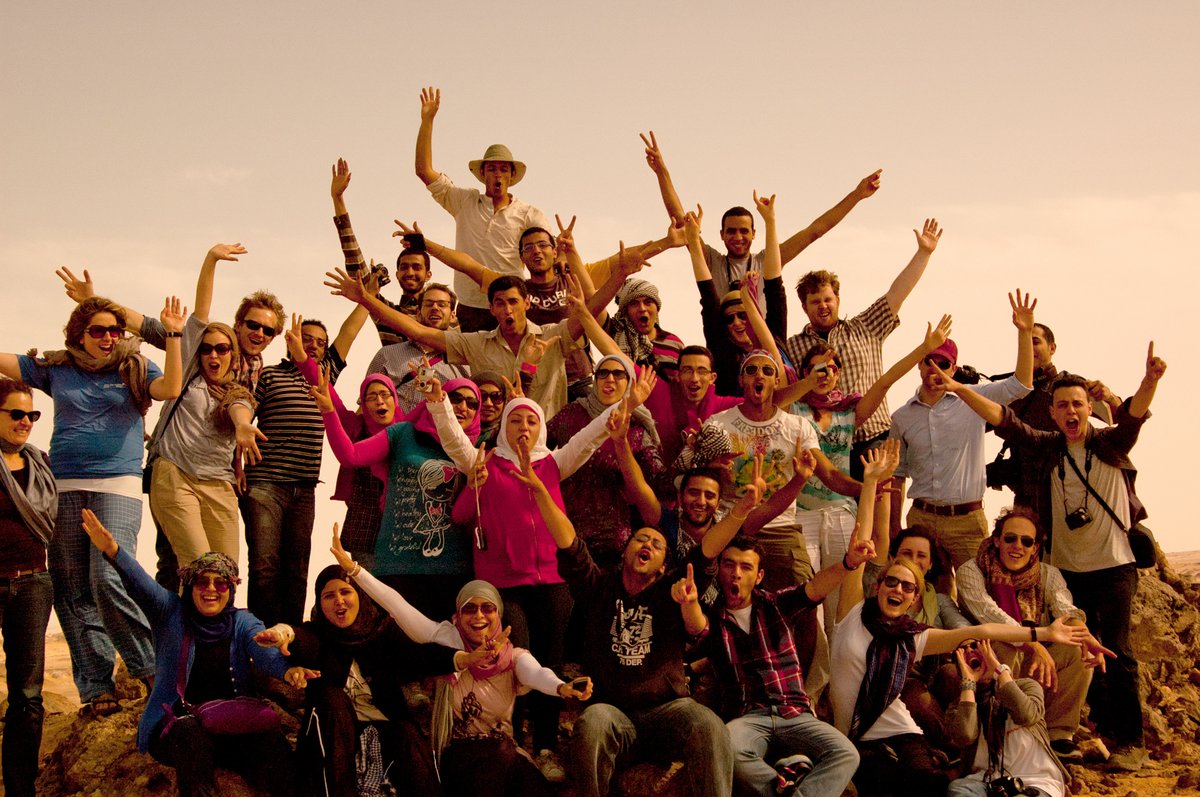Workshop Bahariya Oasis 2012
As the start of our activities in the generously DAAD funded program GERMAN ARAB TRANSFORMATION PARTNERSHIP the first workshop took place in March, 24th – 30th, 2012.
Based on the prolonged co-operation of BTU Cottbus, Faculty 2 and universities in the Arab World in the field of urban design and architecture, this program offers the chance to enhance joint work with Egypt – in particular with our partner for years: the Faculty of Architecture at the Cairo University in Giza.
11 students from BTU Cottbus, 25 students from CU Cairo-Giza, professors, assistant professors, lecturers and external experts from Cottbus, Cairo and Amman worked together for nearly one week, focusing on architectural tasks and solutions in the oasis of Bahariya in the town of Bawiti.
After being welcomed by Prof. Dr. Dalila El-Kerdany at Cairo University, the archaeologists Dr. Tarek El Awadi and Prof. Dr. Fekri Hassan introduced us to the “History and Archaeological Sites in Bahariya”, such as the temple of Alexander the Great, several tombs of local leaders during pharaoh dynasties or the Golden Mummies and “Ancient Water Systems”, mainly the foggara system, a formerly used irrigating tool.
Theoretically prepared, the following tour guided by a representative of the local Egyptian archaeologist’s team leaded through parts of the oasis and to the mummies’ museum and solidified knowledge of the historical context of the region.
During the bus journey to Bahariya, our first check-in at Bawiti and our early tour through the nearby Black and White deserts, all members of the group got perfectly into contact, interacted at ease and exchanged opinions and cultural assets (…mentioning as well lessons in singing and dancing, and, surely, discussions about cultural differences, questions about the recent changes and the expected future of Egypt).
The following working days were structured via input lectures from professors, research assistants and guests. Prof. Bernd Huckriede opened the discussion with his lecture on “Sustainability” and “modern examples of Abobe Architecture”, Prof. Inken Baller sensitized for “Contextual Design and Building in Existing Structures”, Dipl.-Ing. Barbara Witt introduced us to the interrelation of “Garden_Courtyard_House” and Prof. Ingo Helmedag was referring on “Abode_Mud_Clay – Abobe Architecture in History”.
Further on, walks in the project area, field studies, interviews with the local community, analysis via pictures and sketch drawings were used as methodological tools. Four German-Egyptian student groups were instructed by mixed supervising teams. Discussing one general concept per group, detailed tasks were shared among the students in a self-organized way.
Parallel to the content-addressed backing, the friendly and introverted atmosphere in our guest house in Bawiti - the International Hot Springs Hotel, run by Peter Wirth - supported team spirit and working as well.
On Thursday morning – after a night with little sleep and maximum utilization of drawing tools, computers and electricity devices – the presentation of our workshop results took place and met our expectations in a very good way. Inspired by the impressions of the place, the great interaction of participants, the perfect organization of our Egyptian counterpart and the shared interest in the architectural outcome, professors of both universities agreed on an ongoing project work and pronounced a bilateral student competition.
Back in Cairo, we enjoyed a final dinner together.
For the German participants another wowing day remained: visiting Cairo with spots of architectural and cultural interest, such as the pyramids and a walk through the Islamic Old Town guided by Dr. Ralph Bodenstein from the German Archaeological Institute.
With a last view over the skyline of Cairo with its domes, minarets and housing structures as seen from Al-Azhar Park and a last meeting of students from Cairo University at that place, we finished our visit in Egypt.
We all did not just spend a highly inspiring time, exchanged contact data and small presents (very nice personalized sketchbook – many thanks to our Egyptian colleagues and friends!), but also can definitely say, that the workshop enriched participants with lasting impressions in a professional, cultural and personal way.

